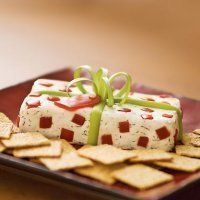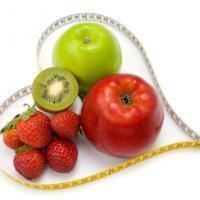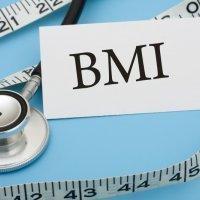Zinc and 9 Zinc Rich Food To Include In Your Diet
As a nutrient, zinc may be a less familiar dietary mineral than iron or calcium or sodium, but it is no less important to our metabolism or our health. In fact, more than 300 zinc-dependent enzymes are currently known. Even a mild dietary deficiency of zinc can have far-reaching health implications. Immunity, reproduction, skin health, and vision can be affected if the body does not get enough zinc on a regular basis. The importance of this mineral to multiple body systems makes it even more important for us than many other well-known nutrients. This task can be a very challenging one, so nutrition researchers often recommend using a Mediterranean-style diet.
Researchers have shown that diets deficient in zinc induce acne symptoms in young men. Also, acute depletion of zinc can cause loss of the sense of taste and appetite. Zinc is also critical to vision. It works together with vitamin A to help sense light and to send nerve impulses to the brain. Studies also revealed that impaired zinc nutrition reduces male fertility.
The most well-known fact about zinc in foods is almost certainly that oysters are rich in it. A typical oyster weighing ~1 ounce will contain about 8-9 milligrams of zinc. Red meat and different kinds of nuts and seeds (e.g. sesame and pumpkin seeds) are also rich in zinc. Shiitake mushrooms, crimini mushrooms, spinach, and asparagus are the examples of very good plant food sources of zinc.
Like other minerals, zinc in foods is remarkably stable to shelf storage. Cooking meat does not lead to dramatic loss of zinc. So unlike some other minerals – for example, potassium – you don't need to be concerned here about losing too much zinc if you enjoy cooked meats.
The daily requirement of zinc increases with age: from 2-5 mg for small children to 8-10 mg for teenagers and adults and 11-12 mg for pregnant and lactating women.
Interaction Of Zinc With Nutrients
Like sodium and potassium, or calcium and magnesium, zinc and copper function together in the process of metabolism. Too much zinc in the diet can impair ingestion of copper. Copper and zinc may directly compete for absorption from our gastrointestinal tract. Diets high in zinc may also lead to overproduction of the protein called metallothionein that binds both copper and zinc.
Deficiency Of Zinc
Perhaps the biggest risk of zinc deficiency in a healthy adult would be caused by the diet poor in animal foods, nuts, seeds, fresh vegetables or whole grain food. Vegetarian diets tend to be a bit lower in zinc than diets that contain meat. It is better to consume zinc from whole, natural foods than from the fortified foods.
Dietary Toxicity of Zinc
The major risk associated with excessive zinc intake is that it may impair the ability to absorb other important minerals. In particular, high zinc intakes impair absorption of copper, a nutrient we already struggle to obtain from our diets. Reduced copper absorption, in turn, can lead to anaemia and result in fatigue. Fortunately, it appears that all the published cases of excessive zinc intake involve either a nutritional supplement or a related non-dietary exposure (denture creams, for instance, can contain excessive amounts of zinc).
Products Rich in Zinc
1. Spinach
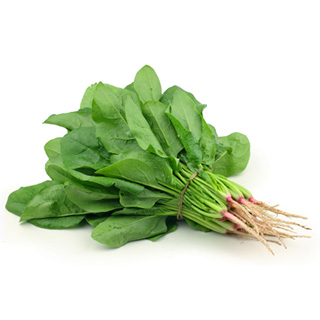 Types of Spinach Rich in Zinc (100g):
Types of Spinach Rich in Zinc (100g):
| Spinach | |
| 100 g | 1 bunch (340 g) |
| Zinc: 0.53 mg (4% DV) |
Zinc: 1.8 mg (12% DV) |
Even though spinach does not belong to the products richest in zinc, it is remarkable that it contains a medium amount of it considering that spinach is a plant. Zinc is just one of the many vitamins and minerals that spinach is known for, and one more reason to eat it more often. Serving a salad with spinach as the base is an easy way to start getting more zinc into your diet, especially considering that it provides 0.53 milligrams of zinc in a 100 g portion with only 23 calories.
2. Shrimps
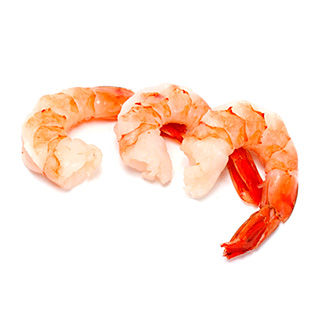
| Crustaceans, Shrimp, Untreated |
| 100 g |
| Zinc: 1.34 mg (9% DV) |
Being low in calories, shrimps serve as a perfect source of zinc, and also provide other benefits like high quality proteins. Shrimps are also an outstanding source of antioxidants. Like fruits and vegetables, shrimps help fight inflammation in the body which may happen to be of use to anyone suffering from an inflammatory condition, even a common flu. Shrimps contain 1.34 milligrams of zinc per 100 g serving.
3. Kidney Beans
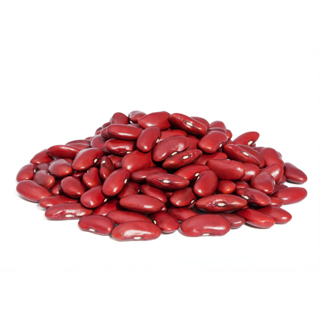 Types of Kidney Beans Rich in Zinc (100g):
Types of Kidney Beans Rich in Zinc (100g):
| Beans, Kidney, Red, Mature Seeds | |
| 100 g | 1 cup (184 g) |
| Zinc: 2.79 mg (19% DV) |
Zinc: 5.13 mg (34% DV) |
Kidney beans are a great non-meat source of zinc (2.79 milligrams/100 g), which is good news for vegans and vegetarians looking to have enough zinc in the diet. These beans also provide energy, help maintain healthy blood glucose levels and allow you to forget about hunger for long periods of time. Kidney beans can be added to any entrée to increase the amount of fibre in the diet and add additional protein or eaten as a separate meal.
4. Pumpkin Seeds

| Seeds, Pumpkin And Squash Seeds, Whole, Roasted, Without Salt | |
| 100 g | 1 cup (64 g) |
| Zinc: 10.3 mg (69% DV) |
Zinc: 6.59 mg (44% DV) |
We can bet you don't eat much pumpkin seeds. They are not only remarkably high in zinc (10.3 milligrams/100 g), but they provide other benefits to the body like helping you sleep better at night, providing you with a dose of omega-3 fats, and keeping your blood sugar levels. Latest research also suggests that pumpkin seeds, like flax seeds, may be considered an anti-inflammatory product. What can be considered as a drawback is their high energetic value (559 calories/100 g).
5. Oysters
| Oyster, Eastern, Wild | |
| 100 g | 6 medium (84 g) |
| Zinc: 39.3 mg (262% DV) |
Zinc: 33.01 mg (220% DV) |
The amount of zinc in oysters varies from 16 to 182 milligrams, but will always be enough for the day if you get a 100 gram serving. The benefit of eating foods high in zinc rather than taking a zinc supplement is that your body can easily get rid of excessive amounts of the mineral that come from natural sources.
6. Watermelon Seeds
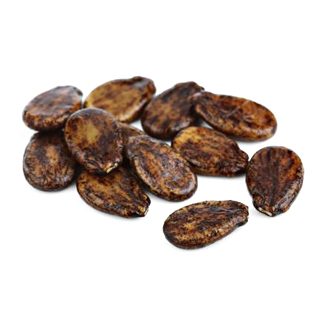
| Seeds, Watermelon Seed Kernels, Dried | |
| 100 g | 1 cup (108 g) |
| Zinc: 10.24 mg (68% DV) |
Zinc: 11.06 mg (74% DV) |
These seeds are often spat out, though in fact they are an excellent source of zinc (10 milligrams/100 g). You can consume them dried or even toasted. Beside zinc, they hold a reasonable amount of protein, magnesium, healthy fats, and contain B vitamins. This makes watermelon seeds a great snack to consider, since most of us are not used to eat them. Like the abovementioned kinds, watermelon seeds tend to be high in calories (up to 602 calories per 100 g).
7. Garlic

| Garlic | |
| 100 g | 3 cloves (9 g) |
| Zinc: 1.16 mg (8% DV) |
Zinc: 0.1 mg (1% DV) |
Garlic provides a respectable amount of zinc (1.16 milligrams/100 g) as well as a list of other health benefits too long to mention them all. Of course, one cannot take so much garlic per day to make it a primary source of zinc, but it can contribute and add to the day’s total intake. Garlic also has cleansing properties, and is believed by scientists to have anti-cancer effects and help to prevent issues with heart.
8. Peanuts
| Peanuts, Virginia | |
| 100 g | 1 cup (146 g) |
| Zinc: 4.43 mg (30% DV) |
Zinc: 6.47 mg (43% DV) |
Peanuts can be used as a between-meals snack, but they also provide 4.4 milligrams of zinc in a 100 g portion. There is also possibility to opt for eating peanut butter if one dislikes the crunchiness of whole peanuts. But bear in mind that 318 calories per 100 g is a good reason not to get carried away when munching too much peanuts.
9. Dark Chocolate
 Types of Dark Chocolate Rich in Zinc (100g):
Types of Dark Chocolate Rich in Zinc (100g):
| Chocolate, Dark, 70-85% Cacao Solids | |
| 100 g | 1 oz (28 g) |
| Zinc: 3.31 mg (22% DV) |
Zinc: 0.94 mg (6% DV) |
And finally, another pretext to have a piece of this treat. On the one hand, it contains up to 3.3 milligrams of zinc in 100 grams. There are also antioxidants in dark chocolate which cannot be found in either milk or white chocolate. Besides, dark chocolate does not contain additional sugar and fats present in the other kinds of chocolate.
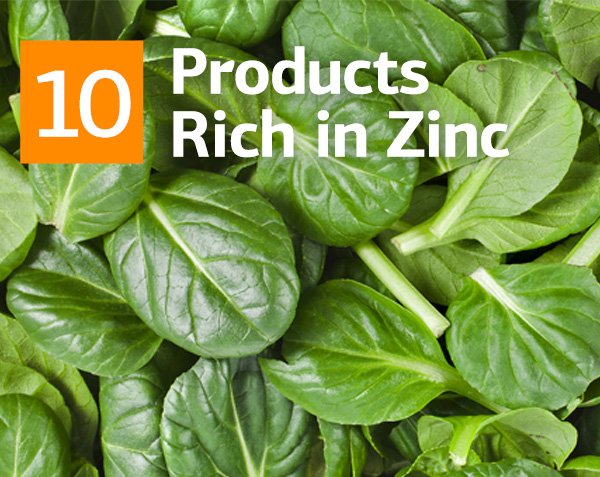
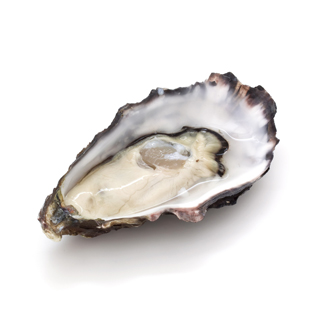 Types of Oysters Rich in Zinc (100g):
Types of Oysters Rich in Zinc (100g):
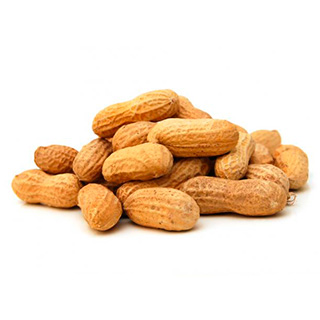 Types of Peanuts Rich in Zinc (100g):
Types of Peanuts Rich in Zinc (100g):
